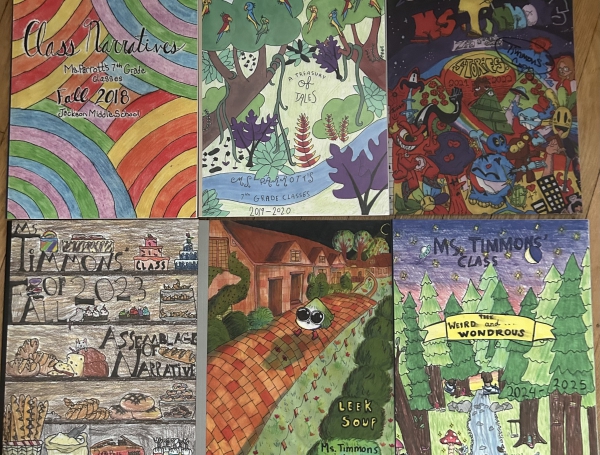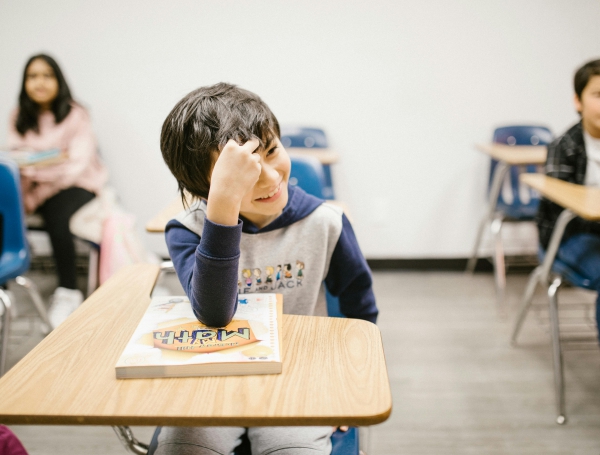

How Mindset Can Transform Your Math Class
June 5, 2017
One of the things I truly enjoy about teaching is that I also enjoy learning, and decades into my teaching career, I am still learning new and innovative ways to connect with my students and increase their success in the math classroom.
More than a couple of years ago now I learned of the concept of a mindset in relation to the classroom. I have always known what a mindset is, but I had never related it to my teaching or my students’ learning. After reading Jo Boaler’s Mathematical Mindsets, I have actively incorporated strategies she has shared into my math classes and have seen amazing results. For example: homework. I currently teach math at community college - my classes comprise of many types of students: high schoolers, stay at home parents, Veterans, fulltime employee earning their degree at night, parolees, and the stereotypical 18-20 year old college student. So of course many of these students have a tremendous amount of responsibilities outside the classroom and their time is limited, so homework must be educational and meaningful.
I am still required by the college to assign certain amount of typical math (drill/practice) homework, but I have reduced that number to a minimum and instead offer homework that is reflective in nature, asking questions such as: how does today’s concept relates to real life? What about today’s lesson relates to a previous lesson? What part of the lesson was the easiest and what part did they struggle the most with? As a result, I have definitely seen an improvement in how students think of themselves as mathematicians (“Oh, so everyone one struggles with a math concept occasionally, not just me,”) as well as how students relate to one another in the classroom.
I have always known that there is a language of mathematics and have been a strong proponent of mathematical literacy in my classrooms. The book Teaching Numeracy: 9 Critical Habits to Ignite Mathematical Thinking by Margie Pearse has been a great resource for me as it not only supports what I have already been doing in terms of mathematical literacy (numeracy), but has also provided me with new ideas and fresh thinking. For example, when I taught middle school was the topic was metric measurement, I loved the ideas that Teaching Numeracy provided about a Measurement Scavenger Hunt (in the “How Can I Do This in my Math Class Tomorrow?” section). Briefly, the teacher asks for students to locate something that weighs, say, 20 grams or measures 50 centimeters. We then expanded it to each person writing some of their measurements on a 3x5 card in metric measurement and each day selecting one card and trying to figure out who it is. Students loved this “game” and it definitely reinforced mathematical understanding, metric measurement and estimation.
Another great numeracy strategy for any level that students absolutely love is Stump the Teacher - basically, the teacher (or a student if one is willing) is in the “hot seat” and the students try to create mathematic questions that they think would stump the teacher. This gives students the opportunity to think critically at higher levels of Blooms Taxonomy, as well as to think of questions and the answers. It is also always fun to invite the principal or other staff members to sit in the hot seat and let the students try to stump her/him!
My biggest challenge as a math teacher has been offering my students hands-on experiences, it’s just not a natural “go to” for me when I create my lesson plans. Knowing this, I have been very proactive in searching for material that will provide me with hands-on math experiences that I can use as is, or tweak if needed. For example, one project that works with all levels is creating a math vocabulary poster. Each student selects a mathematics vocabulary word and create a poster with the word, defines it, creates a mathematics-based drawing and draw an illustration of a real-life example of the vocabulary word in use. Students then present their vocabulary word to the class in a 1 – 2 minute speech and answer any questions. We would then brainstorm together other times in the real-world where that concept occurs. This activity incorporated reading, language, art, mathematics, team work (if you choose to work in pairs and/or teams), oral language skills, creativity and making connections. I have used this with students as young as 6th grade to AP Calculus students. I have never taught elementary school, but for sure this would be a great hands-on activity for them as well!
It’s interesting….as I think about some of my favorite lessons and ones where the students learned the most, they involved all three of these ideas - a positive mathematical mindset, a numeracy component, and some hands-on integration. I’d love to read from other teachers about how they incorporate one or more of these ideas into their lessons. Also, feel free to share challenges or frustrations – have you had the same experience? Do you have words of wisdom to share?
 Suzanne Warner, M.S., received her Masters Degree in Education from the University of Rochester, New York in 1992. She has taught mathematics in the middle school, high school, and college settings, most recently in Oregon.
Suzanne Warner, M.S., received her Masters Degree in Education from the University of Rochester, New York in 1992. She has taught mathematics in the middle school, high school, and college settings, most recently in Oregon.
Suzanne has been lauded by administrators, colleagues, students and parents regarding her teaching and classroom management skills. Her students enjoy learning in a respectful, productive environment, where each student is in control of her/his own learning and behaviors. She strongly believes that all students want to do well, and creates a teaching environment for them to succeed.
Suzanne is an instructor for The Heritage Institute. If you are interested in learning more about this blog topic, check out her course:
MATHEMATICAL MINDSETS: Every Student Can Do Math
Mathematical Mindsets is June 2017's Featured Course! Take the course for credit at the price of clock hours. Discount is reflected on web.




